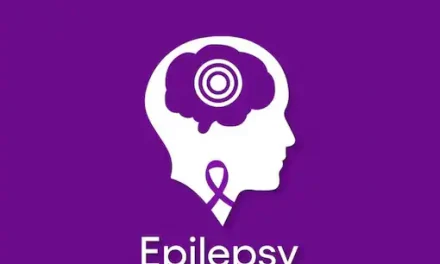Just 25 public health measures can improve people’s health within a single political cycle
Copenhagen, 24 March 2025
Twenty-five policies and concrete health interventions can, in a relatively short span of time, individually and collectively contribute to addressing the overwhelming burden of chronic illnesses in the WHO European Region.
A new paper published in “The Lancet Regional Health – Europe” by experts in noncommunicable diseases (NCDs) at WHO/Europe has for the first time analysed exactly how specific public health measures – so-called quick buys – can have a positive impact on population health across Europe and central Asia in as little as 5 years.
This clearly demonstrates how policy-makers and politicians can achieve measurable results in tackling NCDs within a single political cycle.
NCDs are the leading cause of death and disability worldwide. In the Region, they account for 90% of all deaths and 85% of disability, including mental ill health.[1] A significant proportion of NCD deaths are premature (before the age of 70).
An estimated 60% of all avoidable NCD deaths are due to preventable causes and could be addressed by reducing alcohol and tobacco use, unhealthy diets and physical inactivity. The remaining 40% can be addressed with appropriate treatments, such as rapid response to heart attacks and strokes.
“I am constantly asked by the Region’s Member States and health partners, ‘What can we do to reduce the harms of NCDs in our countries – from cardiovascular diseases to cancers – in the most cost-effective way?’” said Dr Hans Henri P. Kluge, WHO Regional Director for Europe.
“Thanks to our new research, we can now point to these quick buys that can deliver measurable public health benefits quickly if there is political will to adopt and implement them optimally. These actions can help governments deliver on their health commitments, including key targets under the 2030 Sustainable Development Goals; grow their economies; and ensure that as people live longer across our rapidly greying Region, they also lead healthy lives free from illness and disability.”
Quick buys
WHO has previously identified the best buys – proven, cost-effective measures to address NCDs. Now, it can show which of those measures deliver the fastest results. The 25 quick buys include policies targeting key risk factors (tobacco, alcohol, unhealthy diet and physical inactivity) and disease groups (cardiovascular diseases, diabetes, chronic respiratory diseases and cancers).
They include interventions such as increasing excise taxes on tobacco, alcohol and unhealthy foods; reformulating food and beverage products to be lower in salt, sugar and fat; implementing front-of-pack nutrition labelling; pharmacological treatment of hypertension and acute cardiovascular events; and vaccination against human papillomavirus (HPV) and cervical cancer screening.
It’s high time for action
The study is timely. In September 2025 the United Nations will hold the fourth High-level Meeting on NCDs, where countries’ progress on achieving global NCD targets will be under scrutiny. While demonstrable progress has been made against specific targets in countries across the Region, the Region overall is off track to achieve its commitments.
“The clock is ticking,” emphasized Dr Gauden Galea, lead author of the study and WHO/Europe Regional Strategic Adviser on NCDs. “We hope this new study will have a real impact and help alleviate sickness and prevent unnecessary deaths from cancers, cardiovascular and respiratory diseases, and diabetes in our Region. Without the rapid increased uptake of these proven interventions, half of all countries globally will miss the Sustainable Development Goal target to reduce NCD-related premature mortality by one third.”
Barriers and opportunities
While the study’s authors emphasize the importance of implementing all cost-effective interventions to effectively lower the huge health and economic burden of chronic diseases, they recognize the very real political challenges faced by health ministries and other policy-makers trying to protect and improve public health within tight timespans.
Ms Allison Ekberg, study co-author and Technical Officer on NCDs at WHO/Europe, stated, “We understand the political urgency to deliver tangible policy outcomes. By incorporating the dimension of time, our study underscores that leaders who implement these measures can often point to measurable public health benefits within just 1 year, offering a unique opportunity to create a legacy.”
Premature and preventable NCDs are a major national financial burden due to lost productivity. WHO/Europe’s findings offer guidance to policy-makers deciding on interventions that can deliver rapid public health and economic benefits and that align with short-term political cycles. They also illustrate feasible routes for countries to quickly accelerate progress towards the Sustainable Development Goal global health targets to which they have committed.
Avoidable deaths
“There is nothing normal or acceptable about the high level of premature and preventable deaths from NCDs in our Region,” underlined Dr Galea. “While we cannot eliminate these diseases altogether, a significant proportion of this disease burden and human suffering can be avoided by implementing these policies.”
He added, “We recognize that industries that profit from the sale of health-harming products may thwart implementation of these lifesaving interventions. That’s why the quick buys require active public and political support to ensure their enactment and enforcement.”
Dr Kluge concluded, “Ultimately health is a political choice. We hope our study, with its clear findings, will pave the way for governments and policy-makers to take the bold steps necessary to better prevent and respond to the scourge of NCDs, and in so doing benefit generations to come.”
These data are from 2019, before the COVID-19 pandemic. The 4 main NCDs accounted for 74% of deaths and 95% of disability at the peak of the COVID-19 pandemic in 2021.












